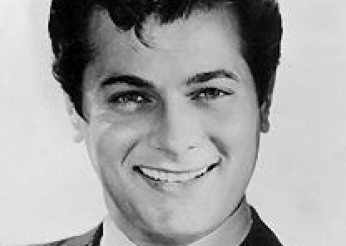The French had the sophisticatedly funny gag master Tati, and the Italians the chatty common-people’s Totò! Both first-class entertainers
When it already seemed that the brilliant American burlesque of early cinema (Keaton, Sennett, Chaplin…) was long gone, in the 1950s some of its aspects were reincarnated in the peculiar opus of the French film author Jacques Tati. But let us start at the beginning…
By reducing his last name (Tatischeff) to four letters -- to T a t i -- this prominently clumsy and long-legged son of Russian immigrants not only, by doing so, purposefully made his last name more French but also brought it into fine harmony with the subtle humor of his small but impressive opus. The French had the sophisticatedly funny gag master Tati, and the Italians the chatty common-people’s Totò! Both first-class entertainers.
Every Tati biography states that he started as a cabaret pantomime artist in the early 1930s and soon after that started acting in several short and two feature films (Sylvie et le fantôme, 1945; Devil in the Flesh / Le diable au corps, 1947). In the turning-point short film from 1947 " - USA (L'Ecole de facteurs), he finally appears in a triple role: as a screenwriter, director and main actor, a trinity that remained the main characteristic of his future work.
His first feature film Jour de fête (1949) about an atypical hero, who wants to distribute mail by “American speed”, reflects the philosophical principles and fundamental poetic ideas of Tati’s opus. The hero of this and his other feature films, Mr Hulot is a silent and well-meaning but lonely eccentric (always with his pipe and bike) whose clumsiness constantly fights with the irrational “stubbornness” of the reality and modern objects in this reality. With his somewhat mechanical “geometrical” gestures and manner of walking, this unyielding devotee of traditional patterns of life shudders at the thought of the contemporary comfort of trendy French middle class that gave up on Renoir’s hedonistic “breakfasts on the grass” and is now terrorized by modern technicalities.
In terms of execution, the parade of visually refined gags dominates the superficially depicted “plot” and utterly stingy dialogue that is replaced by carefully designed sound effects and noises. As in other comedies of this type (“mechanical slapstick”), most of the shots are medium, half-long and long shots.
In the film Mr. Hulot's Holiday (Les vacances de monsieur Hulot, 1953) – pursued by overall tourism hysteria – the enterprising hero Hulot sets off on a journey to Normandy in his old car instead of a bike. Of course, being so outgoing as well as having a mind of his own, Hulot manages to promote the laid-back summer vacation into a gag parade of diverse reckless stunts. Even so, he infused his ironic observations with the tender and melancholy poetry of every day life. The film is rich with picturesque and well-profiled characters and the final scene is extremely inventive.
In his 116 minute long film My Uncle (Mon oncle, 1958), Hulot visits his sister and her husband, a successful owner of a plastics factory. The couple lives in an ultra modern villa and soon the protagonist find himself in a double trouble: apart from fighting an already lost war with technological novelties, he and his eccentric understanding of life suffer from his relatives’ endeavors to find him a wife and a job. In this film, besides the predictable critique of the snobbish obsession with technological novelties, Tati also offers a comparison of two far away worlds – likeably poetic suburbs and, for him, utterly dangerous places of new urbanity whose sophisticated language he continuously has to fight.
In 1968, Tati made his most technologically demanding film on 70 mm tape - Playtime. It is a harsh satire of consumerist society; he repeats the “story” of an individual absorbed in the high tech world of the mass market. Since the author stubbornly insisted on showing this film exclusively on the wide screen, Playtime had relatively low ratings.
In the 1970s he made his last two films: Trafic (1971) and Parade (1974); in the first he mocked modern day car cults and in the latter he offers a fake documentary in which he equates circus gags with comical situations from real life.
Finally, let us remember a curiosity: even though there are a lot of fans of Tati’s poetics, there was one challenger – the famous Serbian black wave film author Živojin Pavlović stated that Tati’s films are a result of film affectation and irritable quibble! (Petar Krelja)
